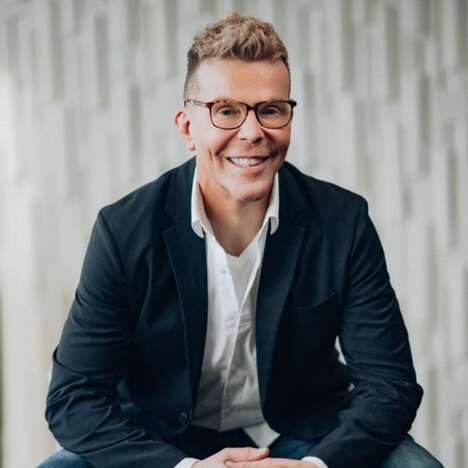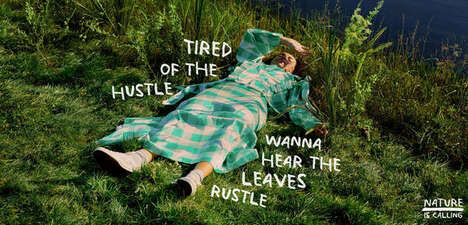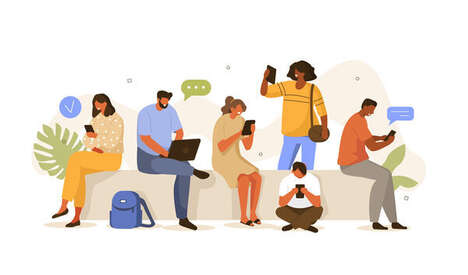Orchestrating Innovation in Advertising
An Interview with Garnet McElree, the Chief Inspiration Officer at LMNO
Related Trend Reports
Activism, Business, Fashion, Marketing, Mobile, Photography, Social Good, Social Media Meet Garnet McElree, the Chief Inspiration Officer at LMNO, who's not just thinking outside the box—he's redefining it. In an industry where creativity is currency, McElree stands out as a maestro of innovative thinking, orchestrating ideas that resonate across cultures and mediums. His approach to innovation is as refreshing as it is effective, blending diverse perspectives with a dash of playfulness and a keen eye on cultural trends.
Meet Garnet McElree, the Chief Inspiration Officer at LMNO, who's not just thinking outside the box—he's redefining it. In an industry where creativity is currency, McElree stands out as a maestro of innovative thinking, orchestrating ideas that resonate across cultures and mediums. His approach to innovation is as refreshing as it is effective, blending diverse perspectives with a dash of playfulness and a keen eye on cultural trends.1. Tell us your name and a little bit about your role at LMNO.
Hi, my name is Garnet McElree, and I'm the Chief Inspiration Officer for LMNO.
2. How are you enjoying Future Festival?
It's been incredible. The experience is overwhelming and exciting at the same time. I didn't know exactly what to expect. I've wanted to come for a couple of years now and I am completely delighted.
3. What's been your favorite keynote so far?
That's a really tough one. I thought the one that Jonathan did today on hip hop, which is really analogous to innovation, creating and then maintaining a rhythm when it comes to executing on ideas, was really powerful.
4. What do you think your biggest takeaway has been?
"Embrace the unknown, take action, and iterate." One of the biggest takeaways for me came not just from the event itself, but from the diverse conversations that happened through networking. The encouragement to not just talk with familiar faces but to "engage with others in ways you wouldn’t typically" was a powerful reminder—one that applies not only to this event but to life as well. Thank you for inspiring that shift.
5. What does innovation mean to you?
Innovation is often confused with creativity, and while they overlap, innovation requires more than just being unexpected. The key difference is that innovation must lead to a positive change or benefit—whether for an individual, a product user, or a larger group. It’s about making a real difference, not just generating ideas.
6. How does your team generate new ideas?
We're very open about the way that we ideate. One of the things that we do, we really believe that one plus one equals three, bringing two people together that may not be similar in terms of the areas that they work in. They jam and come up with something that's usually better than the sum of its parts, hence the three instead of two. Once a week, we also bring the entire agency together to brainstorm on client ideas. So we work traditionally, and then we also work outside of the box, so to speak.
7. Do you have any specific rituals for resetting your team to be creative?
The way that we reset is we walk away from our computers, really removing ourselves. Once we have the information or the data that we're gaining, we really try to break free from devices, be open-minded, tap into what inspires each of the people who are brainstorming individually so that they can somehow find a connection with the challenge that we're trying to solve. Then we get together and have fun and play. I guess play will be a really important part of that innovation process.
8. How do you identify trends? What resources does your team use to spot trends and consumer insights?
I think we encourage each other to look outside of our own inner sanctum, so to speak, and not get really insular when you're working on ideas for clients. So really exposing ourselves to what's happening in the city, what's going on with other groups, culture, different types of people. And I think diversity, bringing together groups of people from multi-ethnic backgrounds, gender distinctions is really important to balance out a team and not make everyone alike.
9. What is the biggest challenge you face when innovating?
I think the biggest challenge would be not necessarily the innovating or the creating, the challenge is removing yourself from the fact that in order to innovate, you're doing something that's new, maybe something that hasn't been done. So in essence, then there's nothing to compare it to. When people are evaluating that idea and you're in that space where you're doing something new, it's almost unhuman-like to not be able to compare it to something. So suspending disbelief, I think that's really important.
10. Has there ever been an instance where another industry has influenced an innovation at LMNO?
After we spoke, I realized not so much in industry, but more of a movement…Our desire to become a global sustainability marketing group came from choosing a different path. While others focused on the challenges ahead, we were driven by a curiosity about how to create a brighter future—starting with reducing our consumption and carbon footprint. We became Canada's first agency to join the Net Zero Challenge, achieved Bcorp status, and expanded the meaning of 'sustainability' by aligning with the U.N.'s 17 Sustainable Development Goals.
11. Looking to the future, how will LMNO continue to be a leader in innovation?
The future continues by continually challenging each other, being open to healthy conversation as well as healthy debates. I think debating is really important. Having different points of view, being involved in different conversations, being open to other people's ideas and opinions, and then also being willing to put your ideas out there in order to have other people critique and give feedback. And always, if you have a strong idea and you want to be innovative, as long as the core things that helped you get to that place remain intact after getting feedback and being collaborative, I think you can still be in a safe place to continue to innovate. It's about breaking the rules a little bit and not following the status quo.
References: meetlmno


